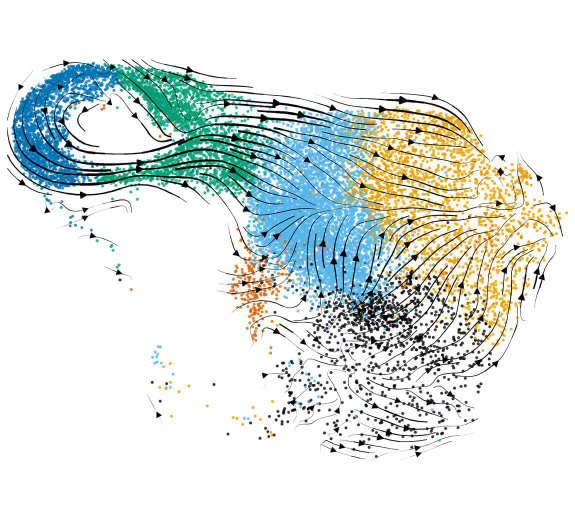
Learn About Our New Systems Immunology Work
Benaroya Research Institute at Virginia Mason (BRI) announces the development of its systems immunology research effort with the addition of two leading experts, Damien Chaussabel, PhD, who will lead the research, and Charlie Quinn, who will lead the parallel development and implementation of new data management systems.
Systems immunology represents the merger of systems biology, state-of-the-art human immunology and medical innovation.
“The goal is to utilize high throughput molecular profiling technologies to assess the status of the immune system and more specifically use these approaches for the early detection of disease, complications or response to therapy. This program is clearly aiming at furthering the goals and mission of personalized medicine,” explains Chaussabel. “Instead of focusing on individual components of the human immune system (genes, transcripts or proteins) we embrace systems in all of their complexity. This means monitoring change for tens of thousands of parameters simultaneously – and making sense of all the data.”
Chaussabel is formerly associate investigator and core director at Baylor Institute for Immunology Research and director of the Center for Personalized Medicine at Baylor University in Dallas, Texas. Quinn is president of Onverra Software and was responsible for the informatics program at Baylor Institute for Immunology Research.
“Our program will rely on cutting-edge technology yet continuously explore novel avenues for exploiting massive amounts of data that we and other groups are generating,” said Chaussabel. “It will also be very collaborative. It will serve as a platform supporting a wide range of projects at BRI but also reach out to collaborators in Seattle and beyond.”
Building such a program requires teamwork and a wide range of expertise from different groups. The program will include: 1) the genomics core that will be generating high quality data; 2) the biostatistics team in charge of study design and data analysis; 3) the bioinformatics team that will be in charge of data mining; 4) the information technology team in charge of software development and database administration.
Chaussabel and his team will also continue to collaborate with Baylor Institute for Immunology Research. “The goal is to create very synergistic programs,” he notes. “This will allow us to share technology and data management platforms. With technology moving forward at breakneck pace, this is the way research will be done in the future and we are excited to explore this path.”
At Baylor, Chaussabel and his team pioneered the use of high throughput profiling technologies in the context of immunologic diseases. The main focus was patient blood profiling, with several key papers demonstrating the value of this approach for the study of autoimmune and infectious diseases. Chaussabel also published resource papers where he described novel strategies for the mining of these types of data.
Quinn will be focused on developing and extending tools for the knowledge and data management systems, as well as helping with the development of new data mining applications and analysis pipelines.
“Most simply put the goal is to enable the science,” says Quinn. “The general idea is to build tools that can put the power of bioinformatics in the hands of scientists so that they can explore the data on their own, and without the further help of bioinformaticians.”
“The six years we spent at Baylor was incredible and the program there is very successful,” said Chaussabel. “Building a program at BRI is a new, exciting challenge. I’m looking forward to working with many collaborators to find innovative solutions to difficult problems.”


